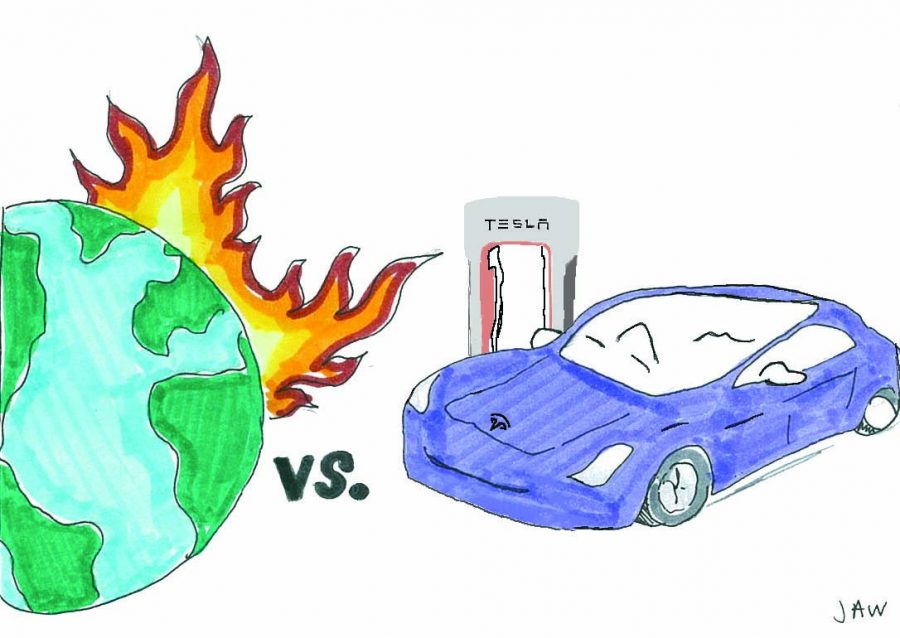Let’s Electrify the Car Market
Ever since the 1890s, the world has been running on internal combustion engines. That innovation was a feat of engineering that helped many people reach their destinations in a faster, more efficient way. However, the soaring demand for oil and other fossil fuels caused massive air pollution. Nowadays, automotive companies focus on building cars with more fuel-efficient engines instead of finding alternative energy sources. However, as the perils of climate change becomes more apparent, we must recognize that the transportation sector alone contributes around 15% of man-made carbon dioxide globally. The world desperately needs to transition to cleaner transportation methods in order to reduce our carbon footprint, and one step towards greener lives is the electric car.
Electric cars have zero tailpipe emissions, whereas their gas-powered counterparts “[emit on average] 24 pounds of carbon dioxide and other global-warming gases for every gallon of gas,” according to the Union of Concerned Scientists. In addition, electric cars are also cheaper to drive, costing about three times less than gas-powered cars, according to a recent Texas Energy and Environment Report.
Simply put, electric cars inherently have environmental advantages over gas-powered cars while saving customers money in the long run. However, electric cars have been slow to catch on, and despite companies marketing electric vehicles as “zero-emission,” many consumers are still concerned by electric vehicles’ short range and high initial cost.
Because of these views, the world has looked down upon electric cars in the past, believing that the benefits of buying one are not worth it because they are more expensive and don’t provide any tangible improvements over its gas-powered counterparts. But with the rise of Tesla, the most renowned electric car company, and its continuous outreach to the general public, people are starting to see the electric car as a more enticing option.
While most internal combustion engine cars in the past have failed in attracting the mass market, Tesla has succeeded in making electric cars appealing to the public developing electric cars since 2003 with a single mission: “to accelerate the world’s transition to sustainable energy.”
Today, according to CleanTechnica, Tesla dominates 75-85% of the electric car industry. According to Forbes, Tesla has a market capitalizations of approximately $100 billion dollars, almost double that of Grand Motors, which makes the company the second most valuable automaker in the world to date.
Tesla’s successes will influence other companies to develop their own electric cars, as seen by Grand Motors’ Chevy Bolt and Cadillac SUV models. The new trend in electric cars is furthering the change towards more sustainable and greener automobiles, which will decrease each car’s greenhouse emissions by 43%, according to Carbonbrief.
That being said, Tesla vehicles take up less than 2% of the entire vehicle car market in the world, but that percentage should grow as people start to value the electric car as a greener alternative rather than just a luxury.






